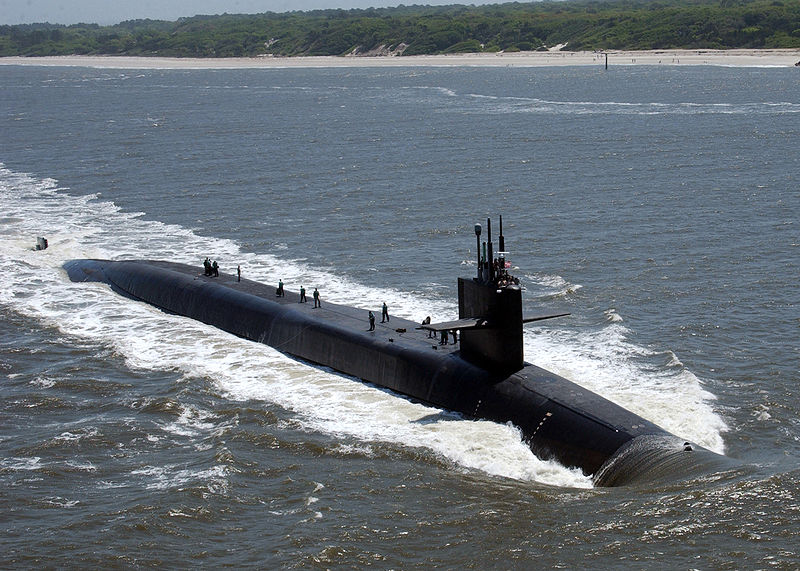
ASP Retired Flag Officers Sign Letter Supporting Iran Nuclear Agreement
On Wednesday, July 12, over three dozen retired military flag officers published an open letter to President Trump supporting the Iran nuclear agreement. The letter emphasizes successes reached by the agreement including dismantling centrifuges, reducing stockpiles of sensitive uranium, and destroying a heavy water reactor. The importance of diplomatic communications between the United States and Iran was stressed as an important channel for de-escalation during crises. The letter – the text of which can be found below – was signed by several ASP-affiliated retired flag officers.
The Iran Deal Continues to Benefit U.S. National Security
An Open Letter from Retired Generals and Admirals
July 12, 2017
Mr. President:
As former military officers, we are writing to express strong support for the nuclear agreement negotiated between the United States, world powers and Iran. The international accord successfully blocked Iran’s paths to a nuclear weapon and has greatly strengthened the security of the United States and our allies.
On the two-year anniversary of the agreement, we applaud all parties to the deal for remaining in compliance. Iran dismantled two-thirds of its centrifuges, gave up 98 percent of its stockpile of sensitive uranium, and poured concrete into the core of its heavy water reactor. The United States has provided proportional relief from nuclear sanctions and has thus far refrained from enacting significant new sanctions, though our Congress is currently considering legislation designed to politicize our national security rather than make meaningful contributions to it.
As we acknowledge Iran’s compliance with the agreement, we also recognize that Iran’s continued ballistic missile activities, human rights violations and support for terrorism pose a threat to the United States and our allies in the region. However, unilateral military action cannot resolve this threat. Nor would externally imposed regime change.
We urge your administration to establish official diplomatic communications channels with the Iranian government. Diplomatic channels are essential not only to ensure the continued implementation of the nuclear agreement but also to resolve national security crises. We must have the ability to respond quickly and directly to deescalate situations (such as when American sailors were captured by the Iranians in the Persian Gulf in 2016) and continue to deconflict our complementary military activities that contribute to the fight against ISIS in Iraq.
Without diplomatic connections, minor conflicts can easily spiral out of control. Diplomacy is a vital tool for mitigating risk. Diplomacy can prevent military confrontations that would cost U.S. servicemembers their lives – without benefiting U.S. national security.
It is important to remember the nuclear agreement is not a deal between the U.S. and Iran alone, but rather a multilateral agreement that resulted from years of complex diplomatic negotiations among world powers. It was a strategic, long-term, high-stakes endeavor that was focused on one goal: preventing an Iranian nuclear weapons program. The effort paid off. We must continue to engage our international partners to build on success of the nuclear agreement by using both economic leverage and negotiations to address Iran’s destabilizing behaviors.
Above all, we must not engage in aggressive posturing that could pave the way to war. The lives of our men and women in uniform cannot be put in harm’s way before exhausting every diplomatic option, and diplomacy must not be sacrificed to today’s caustic political discourse.
Many of us have commanded Soldiers, Sailors, Airmen and Marines during wartime. We know firsthand the tremendous burden you feel when ordering men and women into danger for their country. We ask that before you make one of those tough decisions, you take every step to ensure that sacrifice is necessary.
We urge your administration to recognize the national security benefits of the nuclear agreement and appropriately weigh the risks to our troops of escalating tensions with Iran. Opening a communications channel would be a no-cost, high-reward step that will demonstrate U.S. global leadership, save lives and bolster our security at a time of regional and global instability. The only good war is the one you do not fight.
General Johnnie Wilson, USA (Retired)
Vice Admiral Donald Arthur, USN (Retired)
Lieutenant General Walter Gaskin, USMC (Retired)
Vice Admiral Kevin P. Green, USN (Retired)
Lieutenant General Arlen D. Jameson, USAF (Retired)
Lieutenant General Frank Kearney, USA (Retired)
Lieutenant General Claudia J. Kennedy, USA (Retired)
Lieutenant General Willie Williams, USMC (Retired)
Lieutenant General Robert Gard, USA (Retired)
Major General Donna Barbisch, USA (Retired)
Major General Peter Cooke, USAR (Retired)
Major General J. Gary Cooper, USMC (Retired)
Major General Paul Eaton, USA (Retired)
Rear Admiral F. Stephen Glass, USN (Retired)
Major General Richard S. Haddad, USAF (Retired)
Rear Admiral Jan Hamby, USN (Retired)
Rear Admiral John D. Hudson, JAGC USN (Retired)
Major General Dennis Laitch, USA (Retired)
Major General Fredric H Leigh, USA (Retired)
Major General Donald E. Loranger, Jr, USAF (Retired)
Major General Randy Manner, USA (Retired)
Major General John Phillips, USAF (Retired)
Major General Gale S. Pollock, CRNA, FACHE, FAAN, USA (Retired)
Major General Maggie Woodward, USAF (Retired)
Brigadier General Ricardo Aponte, USAF (Retired)
Brigadier General David Brahms, USMC (Retired)
Brigadier General Dave McGinnis, USA (Retired)
Brigadier General LeAnne Burch, USAR (Retired)
Brigadier General Stephen A. Cheney, USMC (Retired)
Brigadier General John Douglass, USAF (Retired)
Brigadier General David R. Irvine, USA (Retired)
Brigadier General Carlos E. Martinez, USAFR, (Retired)
Rear Admiral Harold L Robinson USN (Retired)
Brigadier General John M. Schuster USA (Retired)
Rear Admiral Jamie Barnett, USN (Retired)
Rear Admiral Michael E. Smith, USN (Retired)
Brigadier General Dan Woodward, USAF (Retired)
Brigadier General Stephen N. Xenakis, M.D., U.S. Army (Retired)





